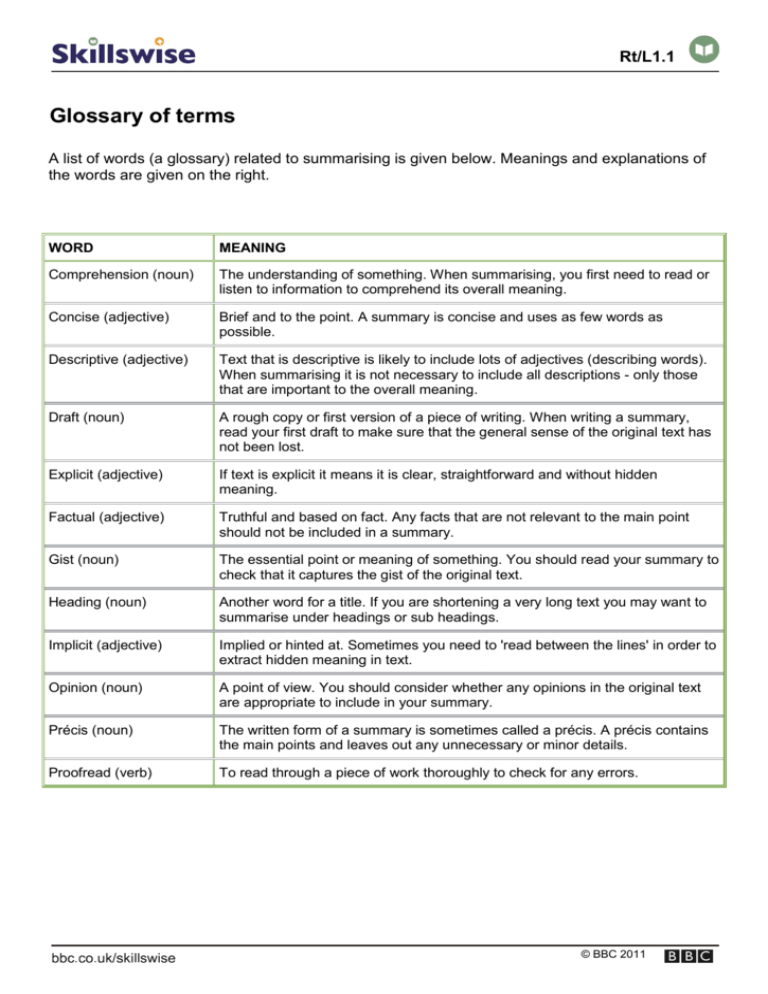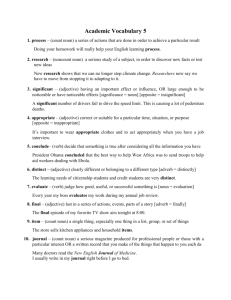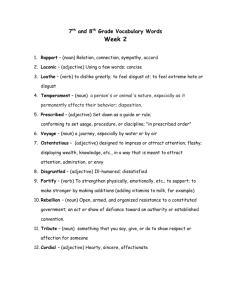Word - BBC
advertisement

Rt/L1.1 Glossary of terms A list of words (a glossary) related to summarising is given below. Meanings and explanations of the words are given on the right. WORD MEANING Comprehension (noun) The understanding of something. When summarising, you first need to read or listen to information to comprehend its overall meaning. Concise (adjective) Brief and to the point. A summary is concise and uses as few words as possible. Descriptive (adjective) Text that is descriptive is likely to include lots of adjectives (describing words). When summarising it is not necessary to include all descriptions - only those that are important to the overall meaning. Draft (noun) A rough copy or first version of a piece of writing. When writing a summary, read your first draft to make sure that the general sense of the original text has not been lost. Explicit (adjective) If text is explicit it means it is clear, straightforward and without hidden meaning. Factual (adjective) Truthful and based on fact. Any facts that are not relevant to the main point should not be included in a summary. Gist (noun) The essential point or meaning of something. You should read your summary to check that it captures the gist of the original text. Heading (noun) Another word for a title. If you are shortening a very long text you may want to summarise under headings or sub headings. Implicit (adjective) Implied or hinted at. Sometimes you need to 'read between the lines' in order to extract hidden meaning in text. Opinion (noun) A point of view. You should consider whether any opinions in the original text are appropriate to include in your summary. Précis (noun) The written form of a summary is sometimes called a précis. A précis contains the main points and leaves out any unnecessary or minor details. Proofread (verb) To read through a piece of work thoroughly to check for any errors. © BBC 2011








